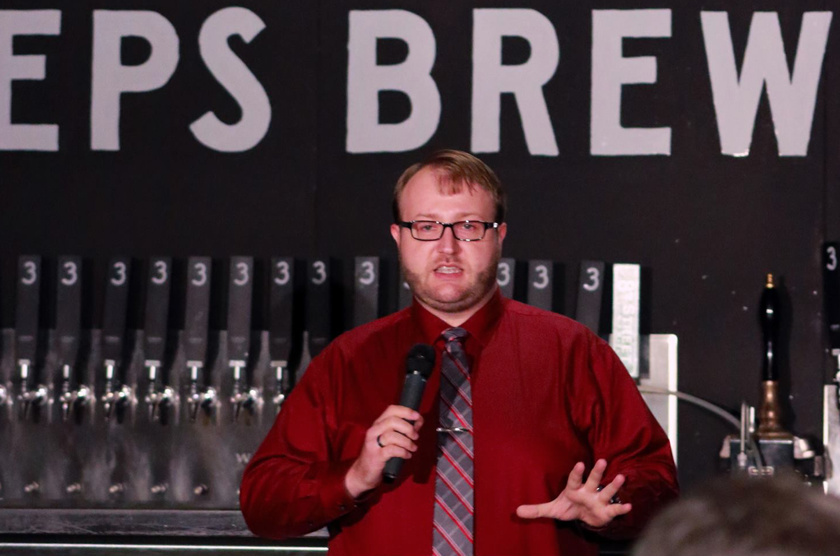New communication professor Stewart fights male stigmas
October 21, 2017
This semester has brought a new member to Lakeland’s communication team: Assistant Professor of Communication Nathan Stewart, whose experience with loss set him on a mission to end male stigmas.
“Like many that spend the years getting a degree and going into higher education, I want to make a difference in the world,” Stewart said. “I felt like Lakeland University is a place with the flexibility and support to truly make a difference.”
On Oct. 16, Stewart spoke at Ignite Sheboygan, a public speaking event. To grab his audience’s attention, Stewart brought up binge watching as a way of recovery for his family, but he used that example more for its relatability than its content. The main message in his speech was that people need to address the stigma that contributes to 70 to 75 percent of people who commit suicide being male.
During the month of February 2013, Stewart’s beloved uncle took his own life. “There were none of the noticeable, common issues some associate with suicide,” Stewart said. “No money problems, no relationship issues, no illness, at least that we were aware of.” This left Stewart wondering why.
After some digging around, Stewart heard a relative mention that his uncle had been complaining of a rotting smell coming from a drain in his basement. When searching the basement yielded no results, Stewart remembered a term from an HBO show that he had binge watched. Phantosmia, which can result in smelling strange, unreal smells, is associated with suicide. This brought a sense of closure to Stewart’s grieving family, even if it had not been validated.
The fact that Stewart and his relatives were unaware of anything being wrong with his uncle just days before his death showed Stewart that there was a broader problem. Stewart believes that men are conditioned to refrain from showing their emotions by society.
Stewart stressed that in our current society, there are not enough opportunities for people to talk about distressing emotions and experiences. “The goal needs to be preventing people from getting to a point of crisis,” he said. “Appropriate forms of communication are the best ways to accomplish this.”
Stewart wants communication to prevent further “out of the blue” deaths. “What I truly hope for is that by hearing my message, by working to make spaces where people can talk, they can help someone else have a chance at their ‘happily ever after.’”


